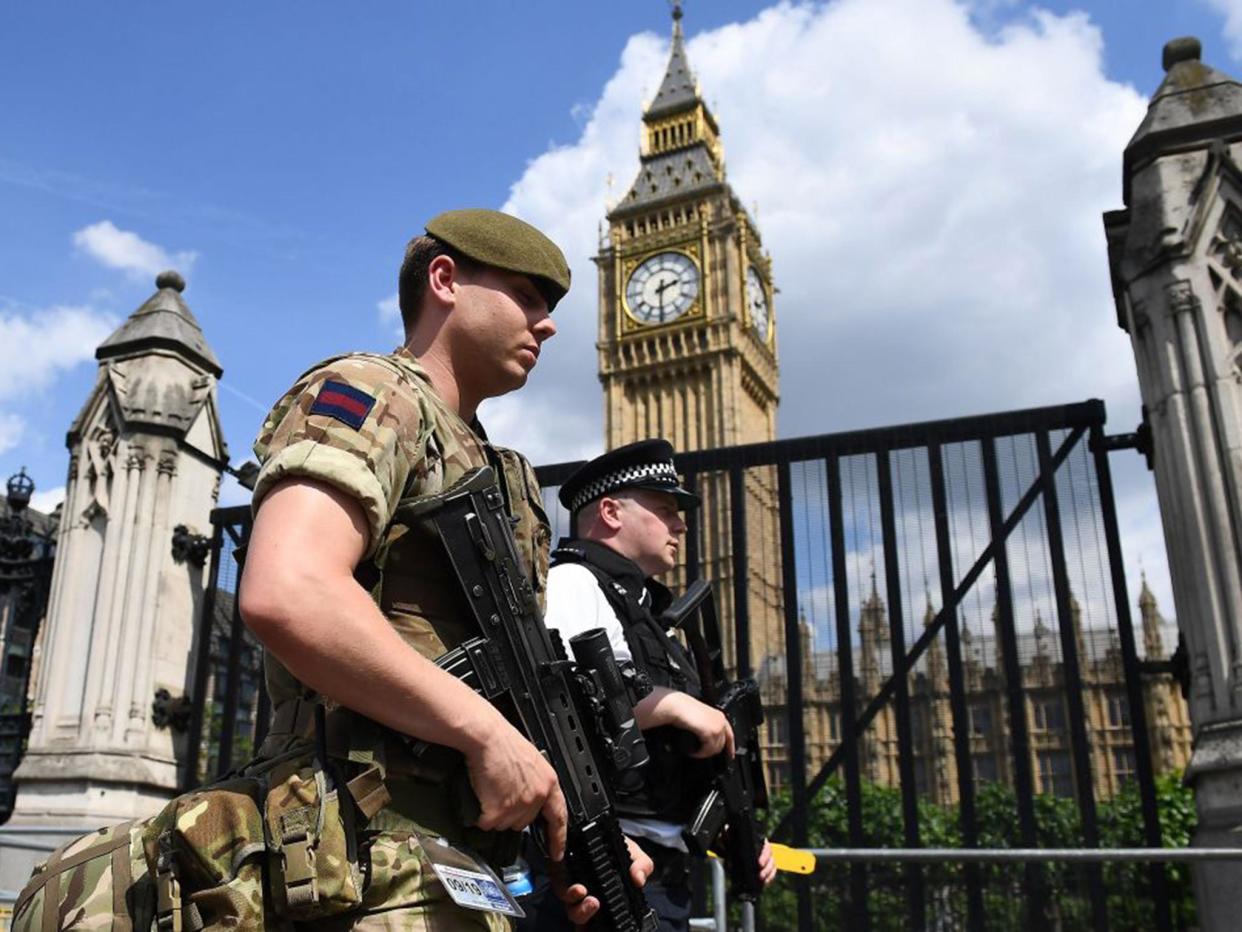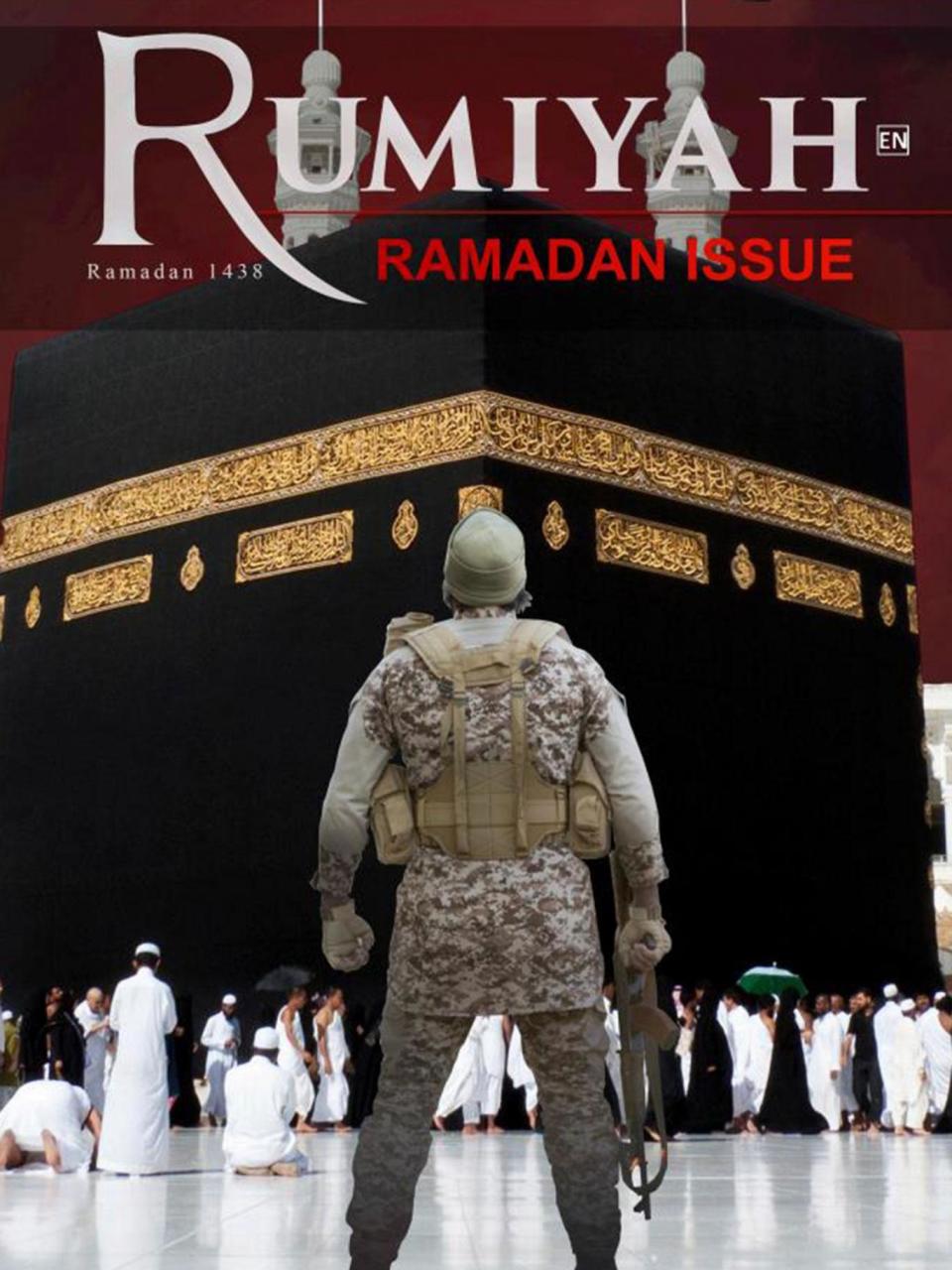Isis calls on supporters to wage 'all-out war' on West during Ramadan with new terror attacks

Isis has called on its followers to wage “all-out war” on the West during the Muslim holy month of Ramadan, sparking fears of new attacks.
The terrorist group uses the start of the 30-day period of fasting and prayer to renew calls for atrocities every year, with previous statements linked to attacks in Orlando and France.
A statement released on YouTube said supporters who were unable to make the journey to Isis territories in Iraq and Syria should attack “infidels…in their homes, their markets, their roads and their forums…double your efforts and intensify your operations”.

The message, called “Where are the lions of war?” continued: “Do not despise the work. Your targeting of the so-called innocents and civilians is beloved by us and the most effective, so go forth and may you get a great reward or martyrdom in Ramadan.”
It listed targets including the “scholars of evil and sedition” and politicians, following lengthy articles in propaganda magazines providing instructions on lorry, car and stabbing attacks.
The segment was featured in a longer article by spokesman Abul-Hasan al-Mujahir, which was published in a Ramadan issue of Isis' Rumiyah magazine on Friday, telling readers to use the month to "maximise the benefit you receive on the day of judgement".
The magazine made no mention of the Manchester attack, despite containing details of "military operations" in Russia, the Philippines, Syria, Iraq, Egypt and Afghanistan.
It contained articles targeting Turkey, Russia, Iran and Egypt, as well as "evil scholars" who have denounced Isis' ideology.
The avalanche of propaganda came days after Isis claimed responsibility for the Manchester attack, saying it was carried out “in response to transgressions against the lands of the Muslims”.
The statement, which was riddled with apparent inaccuracies, threatened: “What comes next will be more severe on the worshippers of the cross and their allies.”
Thousands of soldiers and police are patrolling the UK as the terror threat remains at its highest level of alert, while security has been increased throughout Europe.
Ramadan has previously seen a spike in Isis terror attacks, with the US State Department warning last year that a “call to martyrdom during the month may hold a special allure to some”.
Isis’ former spokesperson, Abu Mohammed al-Adnani, issued annual calls to arms that were linked to attacks on the eve of the holy month.
His last message, delivered in May 2016 months before he was killed in a US air strike, called for a “month of calamity”.

Adnani's message was linked to attacks including the massacre at an LGBT nightclub Orlando and murder of a police officer and his wife north of Paris.
Both terrorists said they were responding to Adnani’s call in statements of responsibility delivered before they were killed police.
Isis later boasted of carnage in the month, which also included that attacks at Istanbul airport and in Nice, claiming 5,200 people had been killed or injured in what it described as “military operations”.
The official count from 14 terror attacks across the US, Asia, Africa and the Middle East was more than 400 dead.
British authorities have said they are doing everything possible to guard against the risk of further attacks as the investigation into the Manchester attacks continues.
Analysts have warned that as Isis continues to suffer heavy losses in its shrinking territories in Syria and Iraq, it will turn its focus elsewhere to retain momentum.
Jeremy Corbyn was accused of “justifying” terrorism with a speech linking attacks with British foreign policy on Friday.
The Labour leader said it is the “responsibility” of governments to minimise the risk of further atrocities and recognise the West’s “war on terror” is not working.
Boris Johnson and Ben Wallace, the security minister, were among those condemning the speech, which said that “an informed understanding of the causes of terrorism is an essential part of an effective response”.
Deaths in the Middle East are one of the most effective recruitment strategies employed by Isis and other jihadi groups, feeding into a victimhood narrative painting the West as murderers and oppressors of Muslims.
But in its own propaganda, Isis has stated that an end to military operations against its territories would not stop terror attacks.
“Even if you were to stop fighting us, your best-case scenario in a state of war would be that we would suspend our attacks against you,” said an article called “Why we hate you and why we fight you”.
“You cannot bring an indefinite halt to our war against you.”

 Yahoo News
Yahoo News 
